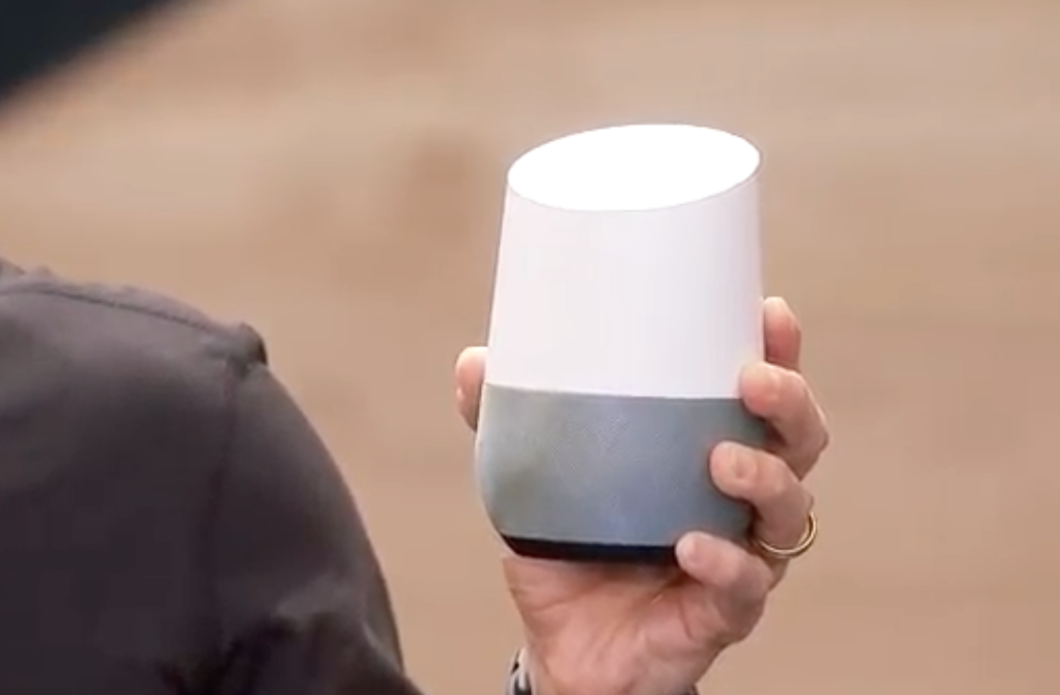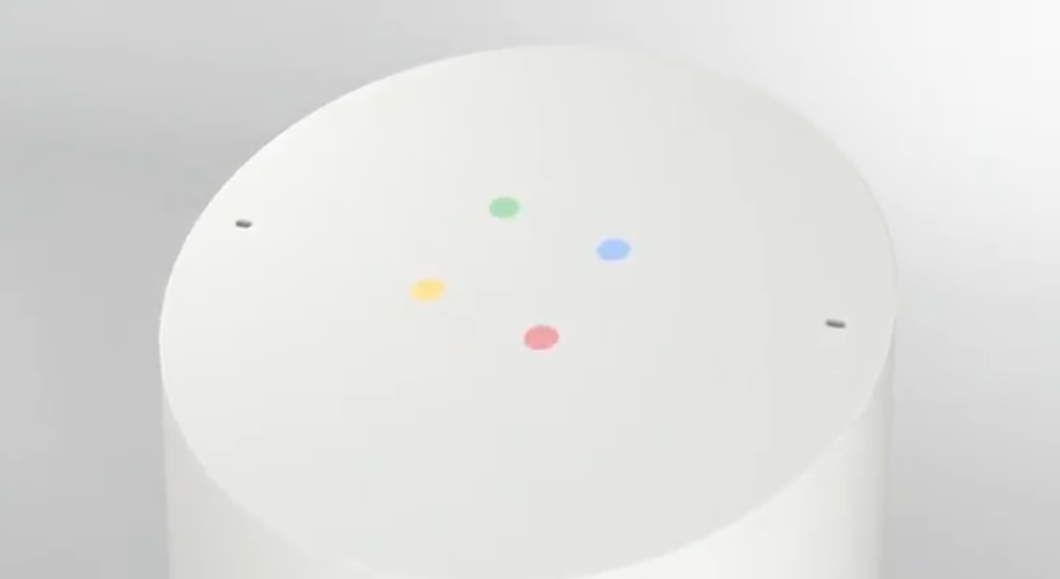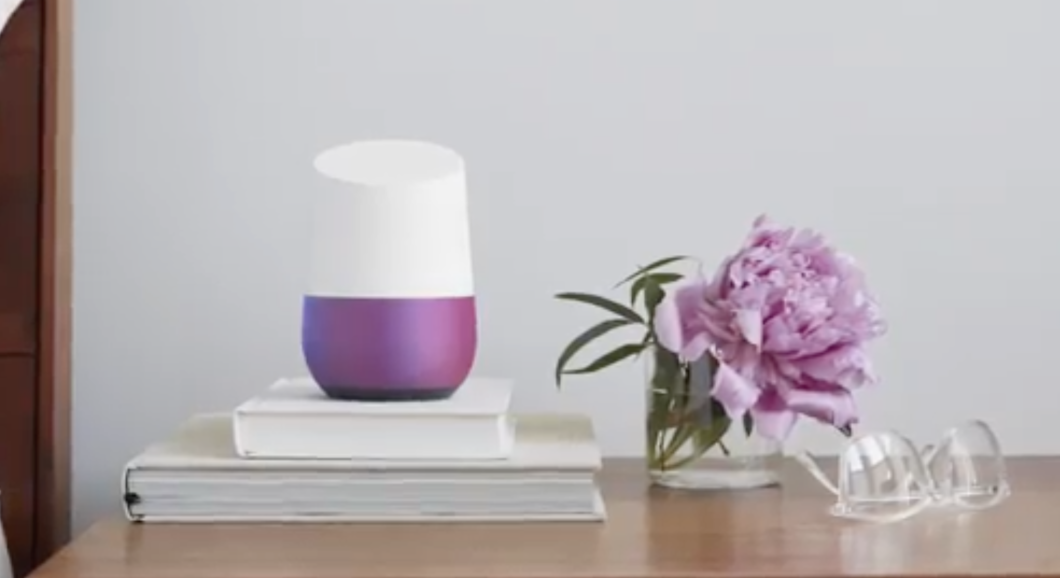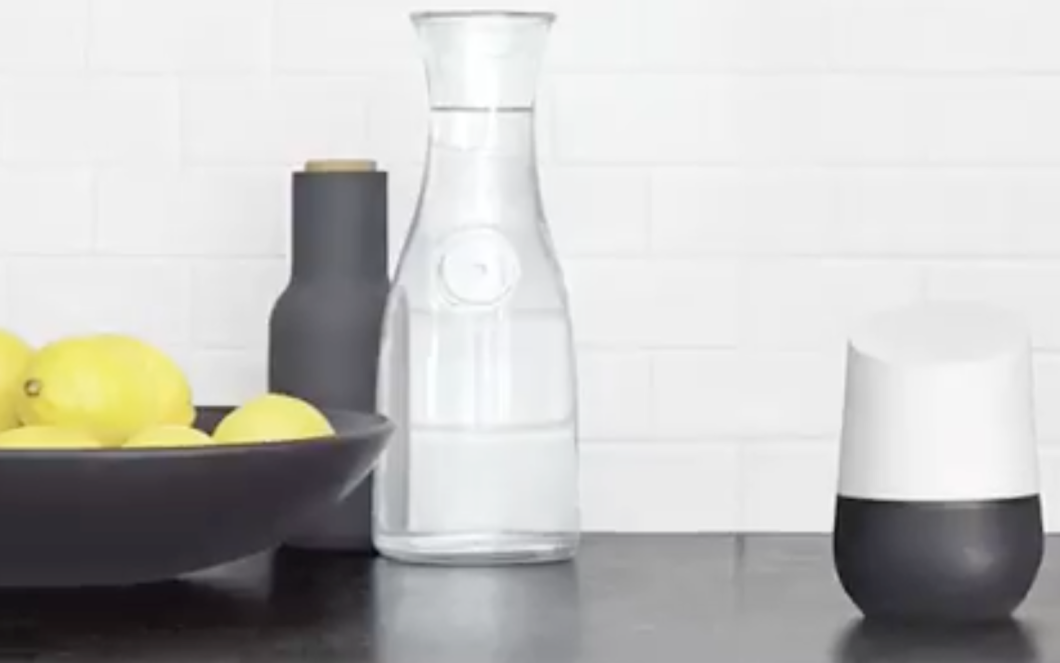Google Home Will Try To Be More Conversational, Flexible Than Amazon Echo
As expected, Google pulled back the covers today on Google Home, the combination WiFi music speaker, voice-activated personal assistant, and connected-home control console that it intends to go face-to-face with Amazon’s Echo device. While Google did not reveal a price for Home, it did detail some of the features it expects to make the product competitive.
In general, Google is updating its voice-activated search — now dubbed Google Assistant — to be more conversational than other voice search tools.
So, for example, you can ask “Who played Ariel in Footloose?” and when it tells you (hopefully) “Lori Singer,” you can follow up with “What other movies has she been in?” and Assistant will, according to Google, know that the “she” refers to Lori Singer.
The idea is that Assistant will ultimately act like a real assistant, understanding your preferences, sussing things out from context clues, and proactively taking action.
On stage, Google CEO Sundar Pichai said we should someday soon be able to ask the Assistant something as vague as “What’s playing tonight?” and not only get local movie theater listings, but results for movies that we are most likely to be interested in seeing. Going a step further, the Assistant should be offering to purchase those tickets for us without the need of having to open a third-party app.
“We want users to have an ongoing two-way dialog with Google,” explained Pichai. “Every single conversation is different; every single context is different.”
Which brings us to Google Home, which appears to be a speaker around the size of a Big Gulp cup from 7-Eleven, and has a similar sculpted shape to the company’s OnHub router:

The top portion of Home is white plastic with no buttons, but the bottom portion will be available in multiple colors and materials so that it can better fit in with your home decor:

Google’s Mario Queiroz didn’t mention the Amazon Echo by name, but it was the elephant in the room as he touted the purported benefits that Home provides, including the ability to work with other wireless speakers throughout the house.
If you have a Chromecast dongle hooked up to your TV, you can use voice commands to have Home control what is cast to the big screen. Chromecast Audio dongles can be used to connect Home to non-WiFi speakers.
Given Google’s ownership of Nest — makers of smart thermostats and smoke detectors — the Home will be give users voice control of these connected-home devices, along with other brands of connected appliances and lights.
Depending on what you let Google know about your business, Home will be able to track shipments, follow your calendar, and send messages to your contacts.
Google says the Home is coming “later this year,” but that it’s announcing the device publicly now so that it can openly work with app developers and partners to bring features to the product when it does launch.
The big question is going to be price. Amazon sells the Echo for $199, but sold many early for half that price to Prime members. Additionally, purchases made through the Echo may be helping to subsidize the retail price of that device. Google stands to similarly make some money through Home, particularly through music and video rentals, but will it be able to compete on price with Amazon? We’ll just have to wait and see.
Want more consumer news? Visit our parent organization, Consumer Reports, for the latest on scams, recalls, and other consumer issues.



